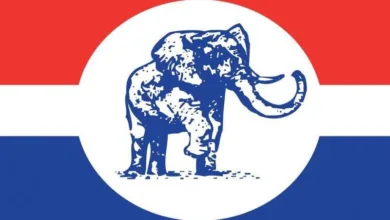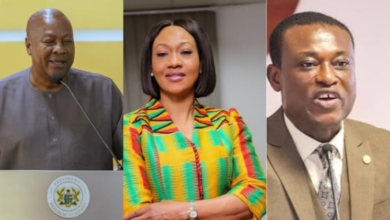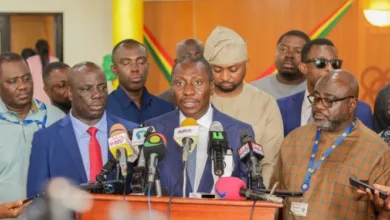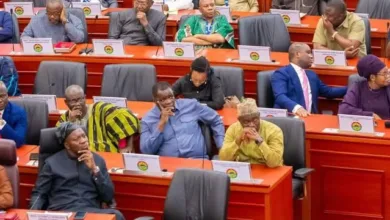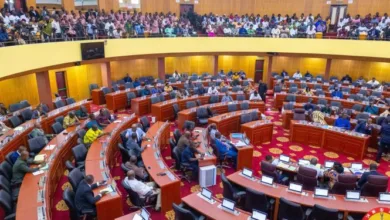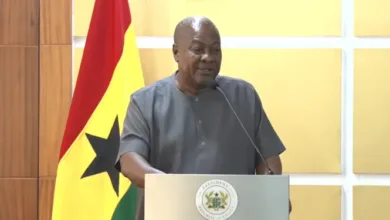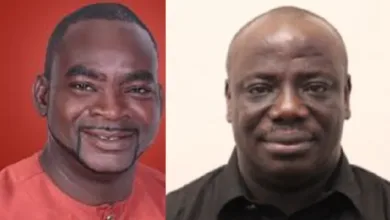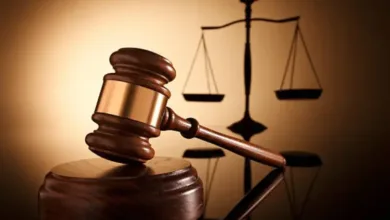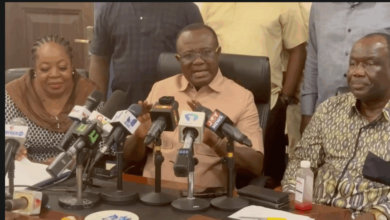Politics
-

New Patriotic Party sets September 18-20 for National Executive elections
The New Patriotic Party (NPP) has announced the dates for its National Executive elections, which will take place from September…
Read More » -

10 petitioners ask President Mahama to remove Special Prosecutor and EC Chair
The Office of the President has received ten separate petitions calling for the removal of Special Prosecutor Kissi Agyebeng, the…
Read More » -

‘Mathew Nyindam is still your MP’ — Afenyo-Markin reminds Kpandai constituents
Alexander Afenyo-Markin, Minority Leader, has maintained that Mathew Nyindam, the Member of Parliament for Kpandai, remains the legitimate representative for…
Read More » -

Majority Caucus asserts Kpandai MP is barred from speaking in Parliament following court ruling
The Majority Caucus in Parliament has declared that it will not permit the Member of Parliament for Kpandai, Matthew Nyindam,…
Read More » -

Parliament approves abolition of COVID-19 levy
Parliament has approved the repeal of the COVID-19 levy. The levy, introduced under the Akufo-Addo administration to support pandemic-related expenditures,…
Read More » -

Mahama vows to appoint Defence, Environment Ministers in 2025
President John Dramani Mahama has rejected public demands for the immediate appointment of substantive Ministers for Defence and Environment, Science…
Read More » -

Minority disputes High Court order for Kpandai election rerun
The Minority Caucus in Parliament has expressed reservations regarding the High Court ruling that ordered a fresh parliamentary election in…
Read More » -

High Court orders rerun of Kpandai parliamentary election
The Tamale High Court has mandated a rerun of the Kpandai parliamentary election within 30 days from today, Monday, November…
Read More » -

NPP Presidential Primaries: Committee Rejects Diaspora Proxy Votes Petition
Joseph Osei-Owusu, Chairman of the New Patriotic Party’s Presidential Elections Committee, has turned down petitions from external branches contesting the…
Read More » -

Former Defence Minister Slams Government’s Unexpected Acquisition of Aircraft After Years of Refusal
Former Defence Minister and Bimbilla MP Dominic Nitiwul has expressed strong reservations about the government’s decision to acquire new aircraft…
Read More »
